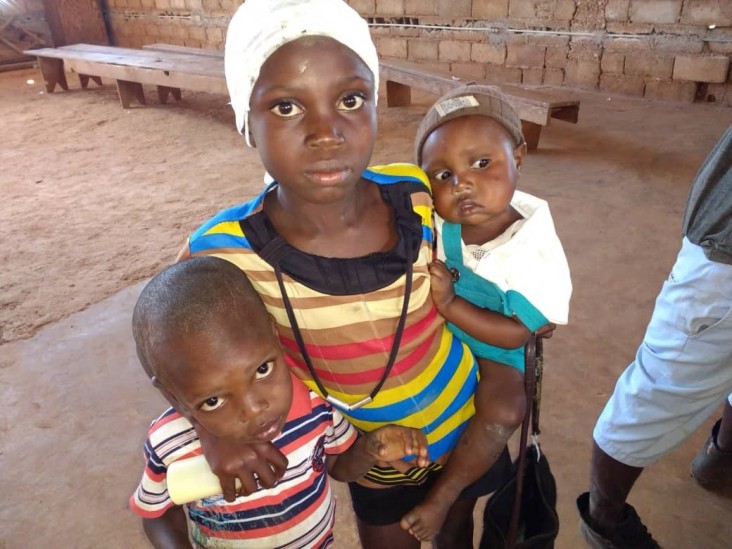Speeches Shim

Eleven-year-old Andrea and her family live in Belle Fontaine, an isolated community on the outskirts of Haiti’s capital, Port-au-Prince. Belle Fontaine has inadequate health infrastructure and individuals must walk for hours to reach the nearest health post, making it hard for families like Andrea’s that work during the day to access health services. With her parents away at work most of the day, Andrea is the primary caregiver for her two younger siblings. A child herself, Andrea did not know what food and care she and her siblings needed to grow and thrive.
In Haiti, 10% of children under-5 years old are underweight and another 4% are wasted, or too thin for their height. After facing a devastating earthquake in 2010, Haiti is still working to rebuild infrastructure, financial stability, and the health sector workforce, leaving communities like Belle Fontaine at risk of illnesses, such as malnutrition, going undetected. USAID works with the Government of Haiti to target hard-to-reach locations with community-based maternal, newborn, and child health and nutrition programs. As part of these programs, USAID supports education on healthy behaviors and nutritious foods, as well as baby weighing to ensure proper growth and nutrition. USAID also works to strengthen referral networks, linking communities and with higher-level facilities for more severe illnesses.
Luckily, when a USAID-supported community health post was set up in Andrea’s community, health workers identified that she and her siblings all suffered from malnutrition and needed immediate treatment. For the next six weeks, health workers regularly visited Andrea and her siblings in their home and provided supplementary food and micronutrients to ensure that the children received all the nutrients they needed for a healthy recovery. After six weeks, health workers saw drastic improvements in all three children's nutritional status. Now, the children visit the community health post monthly for checkups, nutrition education and other health services. Andrea and her siblings are now healthy and Andrea now has the knowledge and skills to keep her siblings from sliding back into malnutrition.
In 2018, USAID-supported community health sites in Haiti reached more than 208,000 children under-5 with nutrition interventions such as health screenings. This includes 12,500 children who were identified and treated for acute malnutrition, including Andrea and her two siblings. By helping governments strengthen their capacity to provide high-quality health and nutritional services, USAID is partnering with countries like Haiti on their Journey to Self-Reliance.
Download the PDF version of this story. [PDF, 130K]

Comment
Make a general inquiry or suggest an improvement.